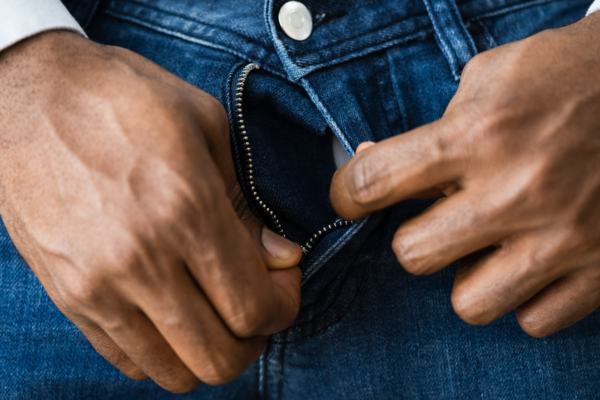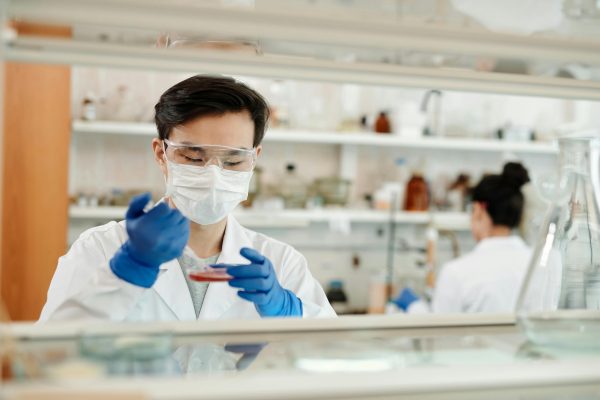Penis irritation can be a concerning and uncomfortable issue for many men. It’s essential to understand the causes, recognize the symptoms, and seek effective treatment. In this comprehensive guide, we’ll delve into the most common reasons for penis irritation, how to distinguish between normal irritation and potential infections, and what steps you can take to alleviate and prevent it.
- What Causes Penis Irritation?
- Symptoms of Penis Irritation
- Effective Treatments for Penis Irritation
- When to See a Doctor
- Prevention Tips
- Studies and Sources
- FAQs: Penis Diseases
- Question: What are the most common penis diseases?
- Question: What are the symptoms of Peyronie’s disease?
- Question: Can erectile dysfunction (ED) be a sign of other health issues?
- Question: How is balanitis treated?
- Question: What are the treatment options for phimosis?
- Question: How can penile cancer be prevented?
- Question: Is priapism a medical emergency?
What Causes Penis Irritation?
Penis irritation can stem from several sources, ranging from harmless friction to more serious infections. Let’s explore the primary causes:
Friction and Chafing
One of the most common causes of irritation is friction, which occurs due to tight clothing, prolonged physical activity, or sexual intercourse. When the skin of the penis rubs against another surface, such as clothing or another person’s skin, it can become irritated, leading to redness, soreness, and discomfort.
To prevent friction-based irritation, consider wearing loose-fitting clothing made from natural fabrics, such as cotton. Also, ensure you’re using adequate lubrication during sexual activity to reduce the risk of friction-related irritation.
Allergic Reactions
The skin on the penis is sensitive and can react to certain chemicals found in soaps, laundry detergents, condoms, or lubricants. Allergic reactions can cause redness, itching, and even swelling.
If you suspect that an allergic reaction is causing your irritation, switch to hypoallergenic products and avoid any new skincare or grooming items that may be the culprit. Always perform a patch test when trying out new products to reduce the likelihood of irritation.
Balanitis
Balanitis is a condition where the head of the penis becomes inflamed, often due to poor hygiene or infections. Men who are uncircumcised are particularly at risk, as smegma, a natural buildup of oils and dead skin cells, can accumulate under the foreskin, leading to irritation and infection.
Symptoms of balanitis include redness, swelling, itching, and sometimes discharge. Treatment typically involves better hygiene practices and, in some cases, antifungal or antibacterial medications.
Fungal Infections (Yeast Infections)
Though commonly associated with women, men can also experience yeast infections on the penis. The fungus Candida can thrive in warm, moist environments, making the genital area an ideal breeding ground if proper hygiene isn’t maintained.
Symptoms of a penile yeast infection include itching, a rash, white discharge, and irritation. Over-the-counter antifungal creams can help treat these infections, but it’s important to consult a doctor if symptoms persist.
Sexually Transmitted Infections (STIs)
Some STIs, such as herpes, gonorrhea, and chlamydia, can cause irritation, sores, and discomfort on the penis. These infections often come with additional symptoms, such as painful urination, blisters, or unusual discharge.
If you suspect an STI, it’s crucial to seek medical attention immediately. Testing and early treatment can prevent further complications and alleviate symptoms more effectively.
Eczema or Dermatitis
Eczema or dermatitis can also affect the genital area, including the penis. These skin conditions result in red, inflamed, and sometimes cracked skin, which can lead to itching and discomfort.
To manage eczema on the penis, it’s important to keep the area moisturized with non-irritating, fragrance-free lotions. Avoiding potential triggers, such as certain soaps or fabrics, can also help reduce flare-ups.
Symptoms of Penis Irritation
Recognizing the symptoms of penis irritation can help determine whether the condition is mild and treatable at home or requires professional medical advice. Common symptoms include:
- Redness or discoloration
- Itching or burning sensation
- Swelling or inflammation
- Soreness or tenderness to the touch
- Rash or small bumps
- Discharge (if related to infections like yeast or STIs)
- Blisters or sores (more common with infections like herpes)
If these symptoms persist for more than a few days or worsen, it’s advisable to consult a healthcare provider.
Effective Treatments for Penis Irritation
The treatment for penis irritation will vary depending on the underlying cause. Below, we outline some of the most common remedies based on the source of the irritation.
Improved Hygiene
In many cases, penis irritation can be alleviated by maintaining good personal hygiene. This involves washing the genital area with mild soap and water, drying thoroughly after showering, and wearing breathable underwear. Uncircumcised men should pay extra attention to cleaning beneath the foreskin.
Antifungal or Antibacterial Creams
For fungal infections like yeast infections or bacterial infections, over-the-counter antifungal creams or prescription antibacterial ointments can offer relief. Always consult with a doctor before starting any treatment to ensure you are using the correct medication for your condition.
Avoiding Irritants
If an allergic reaction is causing irritation, it’s important to stop using any products that may be responsible. Switch to fragrance-free soaps, hypoallergenic condoms, and gentle laundry detergents to avoid further irritation.
Lubrication During Sexual Activity
For men experiencing friction-related irritation during sexual activity, using a good quality, water-based lubricant can reduce discomfort and protect the skin. Avoid using oil-based products, as they can break down latex condoms and may cause additional irritation.
Medical Treatment for STIs
If the irritation is due to an STI, medical intervention is necessary. Depending on the infection, your healthcare provider may prescribe antibiotics, antivirals, or other medications. Early detection and treatment are crucial to preventing further complications and reducing symptoms.
Eczema or Dermatitis Management
For skin conditions like eczema or dermatitis, the use of moisturizers and corticosteroid creams can help manage flare-ups and alleviate irritation. It’s essential to avoid scratching the affected area, as this can lead to further damage and secondary infections.
When to See a Doctor
While mild irritation can often be managed at home, there are certain situations where you should seek medical attention:
- The irritation lasts longer than a week or worsens over time.
- You notice blisters, sores, or unusual discharge.
- The irritation is accompanied by fever, chills, or other systemic symptoms.
- You suspect an STI or other infection.
- Over-the-counter treatments do not relieve your symptoms.
A healthcare professional can provide a more accurate diagnosis and recommend effective treatments tailored to your specific condition.
Penis Diseases: Comprehensive Overview of Symptoms, Causes, and Treatments
Prevention Tips
Preventing penis irritation involves taking a few key steps to protect the sensitive skin of the genital area:
- Wear loose-fitting, breathable clothing to reduce friction and moisture buildup.
- Practice good hygiene, especially if you are uncircumcised.
- Use hypoallergenic products for grooming and laundry.
- Apply lubrication during sexual activity to minimize friction.
- Regularly check for signs of infection or unusual changes in the skin.
By following these guidelines, you can reduce the risk of irritation and maintain the health of your genital area.
Studies and Sources
- Mayo Clinic: Information on balanitis, including causes, symptoms, and treatment, is provided by trusted medical resources like the Mayo Clinic. For more information, visit Mayo Clinic – Balanitis.
- Cleveland Clinic: The Cleveland Clinic offers a comprehensive guide on male yeast infections, including how to manage and treat them effectively. You can read their recommendations here: Cleveland Clinic – Male Yeast Infections.
- WebMD: For a broader understanding of genital skin issues, WebMD provides detailed insights on different causes of penis irritation, including eczema and dermatitis. Find more information at WebMD – Penis Problems and Injuries.
- Centers for Disease Control and Prevention (CDC): For sexually transmitted infections (STIs) as a cause of penis irritation, the CDC provides reliable and updated information. Visit CDC – STIs for more details.
- American Academy of Dermatology (AAD): Eczema or dermatitis on the penis can be managed by following guidelines provided by the AAD. Read about their recommendations for skin care and management here: AAD – Eczema Treatment.
- National Institutes of Health (NIH): The NIH offers a wealth of peer-reviewed medical research, including studies on genital irritation, inflammation, and infection. Find more in-depth studies at NIH – PubMed.
FAQs: Penis Diseases
Question: What are the most common penis diseases?
The most common penis diseases include **Peyronie’s disease**, **erectile dysfunction (ED)**, **balanitis**, **phimosis**, **penile cancer**, and **priapism**. These conditions can affect various aspects of penile health, from structural deformities to infections and cancer.
Question: What are the symptoms of Peyronie’s disease?
Symptoms of **Peyronie’s disease** include a significant bend in the penis, painful erections, and the development of hard lumps (plaque) under the skin. These symptoms can lead to discomfort during intercourse and affect sexual function.
Question: Can erectile dysfunction (ED) be a sign of other health issues?
Yes, **erectile dysfunction (ED)** can be an indicator of underlying health issues such as **cardiovascular disease**, **diabetes**, or **high blood pressure**. It may also be associated with psychological factors like **stress**, **anxiety**, or **depression**.
Question: How is balanitis treated?
**Balanitis** is typically treated with improved hygiene, topical **antifungal** or **antibacterial creams**, and sometimes **steroid creams** for severe inflammation. In recurrent cases, **circumcision** might be recommended to prevent future infections.
Question: What are the treatment options for phimosis?
**Phimosis** can be treated with **steroid creams** to loosen the tight foreskin, **gentle manual stretching**, or, in more severe cases, **circumcision**. Consulting a healthcare provider is essential to determine the most appropriate treatment approach.
Question: How can penile cancer be prevented?
To reduce the risk of **penile cancer**, practice good hygiene, avoid **smoking**, and consider getting vaccinated against **human papillomavirus (HPV)**. Regular check-ups and early detection can also improve outcomes significantly.
Question: Is priapism a medical emergency?
Yes, **priapism** is considered a medical emergency if an erection lasts longer than four hours. Immediate medical attention is required to prevent permanent damage to the penile tissue. Treatment options may include **medications**, **blood aspiration**, or **surgery**.
What to Do If I Can’t Get Hard: Comprehensive Solutions for Erectile Dysfunction





